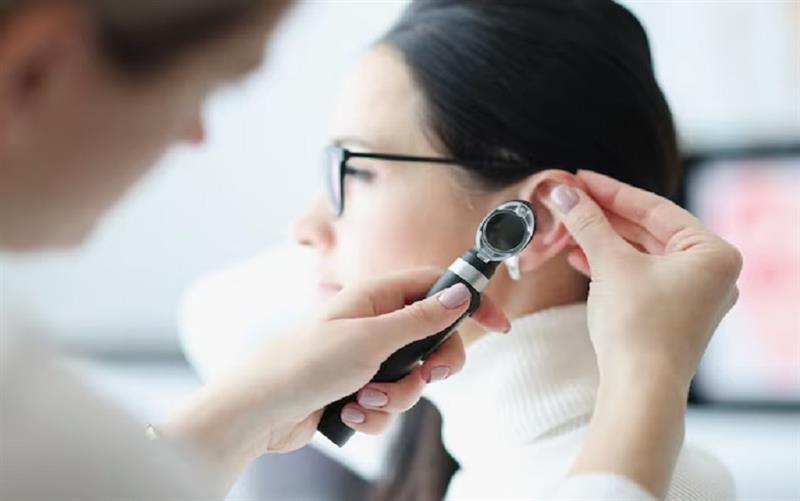
Hearing tests are a crucial gateway to better hearing health. This article explores the importance of hearing tests, how they work, and their numerous benefits. It emphasizes the early detection of hearing issues, customized solutions, and the improvement in the overall quality of life. The article also discusses the emotional and cognitive impacts of untreated hearing loss, the relevance of hearing tests for all age groups, technological advancements, and the significance of follow-up tests.
Understanding Hearing Loss
Hearing loss is often a silent intruder, gradually stealing the melodies of life. It can be caused by various factors, including age, genetics, noise exposure, and medical conditions.
The Crescendo of Benefits
These additional benefits highlight the comprehensive impact of hearing tests on an individual's overall well-being and quality of life. Regular hearing assessments can lead to improved safety, communication, and emotional health, enhancing one's ability to fully engage in the world around them.
1. Early Detection
One of the primary benefits of hearing tests is early detection. Identifying hearing issues in their infancy allows for timely intervention and better treatment outcomes.
2. Customized Solutions
Hearing tests help audiologists tailor solutions to your specific needs. This could include hearing aids, cochlear implants, or simple lifestyle adjustments.
3. Improved Quality of Life
Regaining lost hearing can significantly enhance your overall quality of life. It opens the door to improved social interactions, better job performance, and increased emotional well-being.
4. Safety Awareness
Hearing tests can help individuals become more aware of their acoustic environment. This heightened awareness can lead to improved safety, as individuals can better detect important auditory cues such as sirens, alarms, and approaching vehicles.
5. Enhanced Communication
Clear communication is essential in personal and professional relationships. Regular hearing tests can ensure that individuals maintain their ability to engage in effective conversations, reducing misunderstandings and frustration.
6. Prevention of Cognitive Decline
Some studies have suggested a connection between untreated hearing loss and cognitive decline, including conditions like dementia. By addressing hearing issues through tests and interventions, individuals may lower their risk of cognitive impairment.
7. Improved Job Performance
In many professions, good hearing is essential. Hearing tests can help workers in noisy environments, such as construction or manufacturing, maintain their job performance by ensuring they can hear safety instructions and communicate effectively with coworkers.
8. Psychological Well-being
Hearing tests can contribute to better psychological well-being by reducing feelings of isolation and depression associated with untreated hearing loss. Improved hearing can lead to increased confidence and a more positive outlook on life.
9. Social Engagement
Untreated hearing loss often leads to social withdrawal due to difficulties in group settings. Hearing tests and interventions can facilitate greater social engagement, reducing feelings of loneliness and isolation.
10. Personal Safety
Hearing loss can compromise personal safety by making it difficult to hear warning signals, alarms, and even household noises like smoke detectors or a ringing doorbell. Regular hearing tests ensure individuals can remain alert to these important auditory cues.
The Unseen Effects of Hearing Loss
1. Cognitive Impacts
Recent research has shown a link between untreated hearing loss and cognitive decline. By addressing hearing loss through tests and interventions, you may mitigate potential cognitive issues.
2. Emotional Well-being
Hearing loss can lead to feelings of frustration and isolation. Hearing tests are the first step towards reconnecting with loved ones and improving your emotional well-being.
3. Social Isolation
Hearing loss often leads to social withdrawal. Individuals may start avoiding gatherings, parties, or public events where they fear they won't be able to fully participate in conversations. This social isolation can result in loneliness and depression.
4. Communication Struggles
Communication is the foundation of human interaction. Hearing loss can strain relationships, as individuals with hearing difficulties may struggle to understand or respond effectively to others. This can lead to misunderstandings and frustration for both parties.
5. Reduced Independence
Hearing loss can erode a person's sense of independence. Tasks that were once simple, like using the telephone or attending medical appointments, can become challenging. Dependence on others for basic communication needs can be disheartening.
6. Professional Implications
In the workplace, hearing loss can affect job performance. Difficulty hearing instructions, participating in meetings, or engaging in teamwork can hinder career advancement. This can have financial implications and contribute to job-related stress.
7. Emotional Stress on Loved Ones
The effects of hearing loss are not limited to the individual experiencing it. Loved ones may also feel emotional stress and frustration when trying to communicate with someone who has hearing difficulties. This dynamic can strain relationships.
8. Quality of Life:
Hearing loss significantly impacts an individual's overall quality of life. It can limit their ability to enjoy music, engage in social activities, appreciate the sounds of nature, and fully participate in family gatherings.
It's ideal to keep yourself as educated with your hearing aids and a new breakthrough in the technology. Ask your query via Book an Appointment today. For more information visit https://hearing.careinc.ca or you can call us today at (403)605-6300